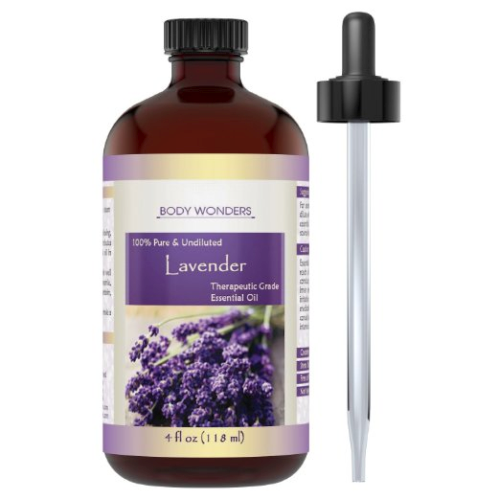Yesterday, we looked at ways to Improve Your Sleep When You Have Anxiety. Another great tip for improving your sleep (whether you have anxiety or other sleep problems or simply want to enjoy sounder sleep) is to use aromatherapy. However, if you don’t use aromatherapy the right way, you’d be better off staying up all night watching the The Weather Channel! Fortunately, we have an aromatherapy expert to share her knowledge with us.
Marilyn’s website is Taruna Oils. I even love the name. I know you’ll enjoy this article as much as I did. I thought I had a pretty good amount of knowledge about aromatherapy but I learned so much from reading this article that I realized I didn’t know as much as I thought I knew.

Using Aromatherapy For A Good Night’s Sleep
by Marilyn Reid
Do you toss and turn all night or possibly even have trouble drifting off to sleep altogether? Do you wake up in the morning groggy and discombobulated due to poor rest? If so, you can continue this pattern, turn to dangerous pharmaceuticals or begin utilizing aromatherapy.
Obviously, using essential oils for an aromatherapy treatment is the best choice on the list. You surely do not want to continue having restless nights and the side effects of sleep aid pharmaceuticals are quite concerning if you read the warnings. While you need to follow directions regarding safe use of essential oils, they are far safer when used properly than drugs.
Lavender – The flowers and the essential oils distilled from this plant are a wonderful choice for those suffering from anxiety and stress. The sedating effects are also ideal for those plagued with sleep troubles. An added bonus to having this essential oil in your medicine bag is the skin healing properties when applied to burns, bites and acne breakouts.
Roman Chamomile – Be careful when purchasing this essential oil because there are other types of chamomile that are less effective for sleep and more so for other ailments. The Roman variety has a peaceful floral fragrance that blends well with lavender and some other oils.
Ylang Ylang – The floral fragrance of this oil has hints of fruit as well. It can be used alone or blended with the two previous oils. It complements them well by improving the quality of your sleep.
Marjoram – While you may think about cooking when you hear marjoram, the essential oil has benefits outside of the kitchen. This particular oil will relax your muscles while soothing your entire nervous system. The sedating effects reduce hypertension as well.
Bergamot – This cold-pressed oil can help balance your emotions. Unlike other citrus oils, it has a calming effect that can benefit your sleep-inducing efforts.
Frankincense – Many ancient cultures used frankincense, including the Romans, Greeks and Egyptians. The oil contains incensole acetate, which relieves anxiety and depression. If you are having sleep troubles related to emotional disturbances in your life, frankincense is an excellent choice.
Other potentially beneficial oils for your sleep problems are valerian root, vetiver, clary sage, cistus, spikenard, rose, neroli, sandalwood and cedarwood.
High-quality essential oils can be found online and in your local health food store. Read about the various companies to find one with a good reputation and affordable prices. If a company prices all of their oils the same, it is a red flag. Some simply require more raw product to create, raising the price accordingly.
In addition to investigating the manufacturer, you should make sure you are purchasing from a reliable retailer. Read online reviews to find out about their customer service and products.
Once you have the oil or oils, you are going to use for sleep induction, you will need to decide how to incorporate them into your nightly routine. One option is to add several drops to your bath water or in the shower. When taking a shower, block the drain and drop the oils into the water, allowing the steamy medicated water to relax your mind and body. Another option is to keep a diffuser in your room. Follow the direction on the package. You can massage a diluted form of the oil into your skin or have your partner do it. The touch is soothing and can help to stimulate the absorption of oils into your system. Some of the oils on this list, such as lavender, can also work directly on tense muscle tissues when applied in this manner.
Keep track of which oils and methods are most effective for helping you to get the rest you deserve at the end of each day. You will soon have the right combination incorporated into your nightly routine. Then, good sleep is yours for the taking!
Marilyn Reid is a successful business owner and natural health enthusiast. She owns a site, TarunaOils.org, which is dedicated to providing tips, ideas, and recipes for use with essential oils and aromatherapy.

Just wanted to add a caution…essential oils are not for everyone. A co- worker brought her essential oils to work. The instant she opened the bottle I got a horrible headache and my sinuses swelled up and I couldn’t breathe. Also I did a little research and lavender in particular should not be used around cancer patients who have estrogen fed tumors…which I had….because it promotes estrogen production.
Thanks for the information, Char. You’re right, it’s always wise to use caution with anything new that you’re unfamiliar with. Thanks for the reminder!
Aromatherapy has definitely helped my sleep. I like to do a Lavender-Camomile-Ylang-Ylang combination in my oil diffuser as I go to bed. I’d be keen to read more about this topic :).
Nicky | http://www.curious-journeying.com